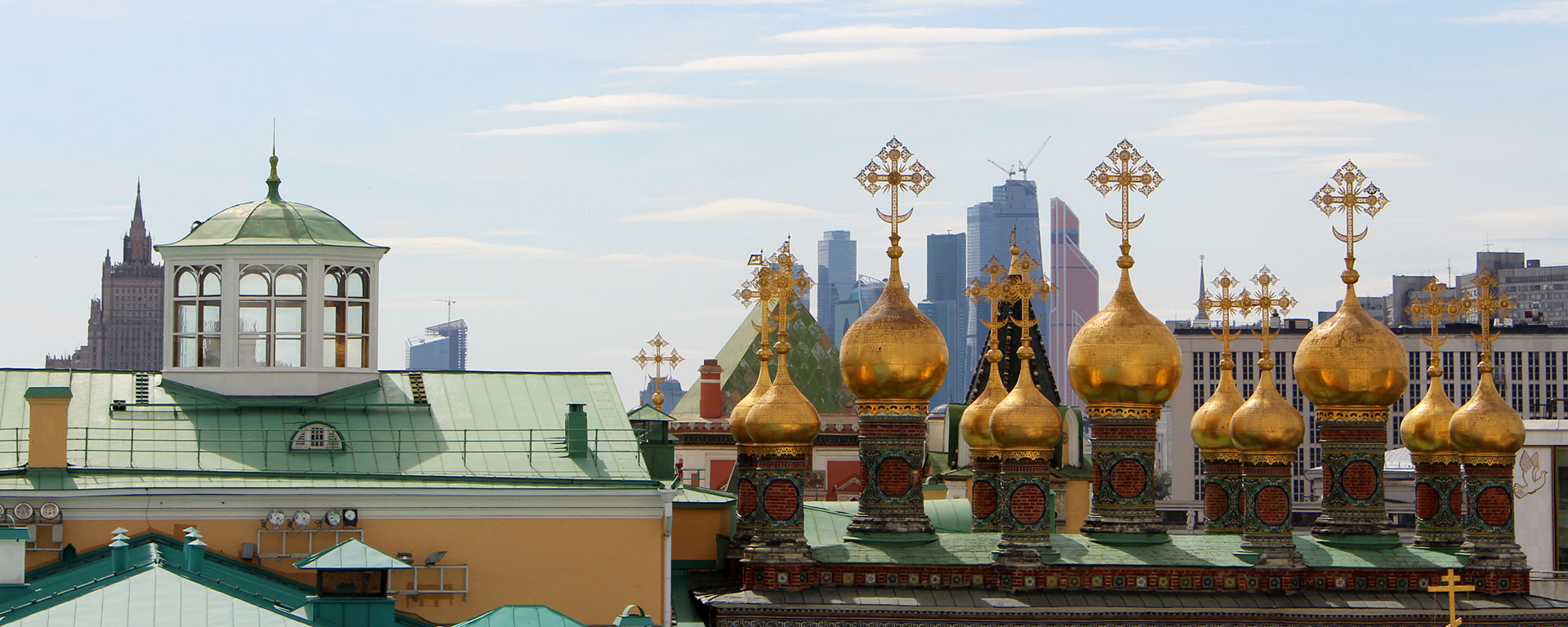Bachelor of Arts in Russian Studies
If you are intellectually curious and want to appreciate the language, culture and history of Russia and the former Soviet Union, a Russian Studies degree is for you. You can develop this appreciation through Russian-language courses as well as through courses taught in English.
The many courses offered by and beyond our program will enable you to explore a wide variety of cultural, literary, social and political aspects of Russia and other post-Soviet states. We also offer special events such as film series, lectures and Russian teas.
As a scholar in our program, you’ll study the Russian language in its cultural context. You’ll be introduced to literary works as well as fine and performing arts, and you’ll get to know the often unspoken rules for “being Russian,” from gift giving to being a good guest. We want our graduates to develop a deep understanding of the diversity and complexity of human thought and world views, and to apply Russian perspectives to texts and ideas beyond the study of language and literature.
As a graduate of our program, you will be prepared to pursue advanced studies in Russian language or literature as preparation for a career in teaching or research. Or you might pursue an international career, given that major private, state and nonprofit organizations seek employees with an expertise in Russian.
Why Brandeis?
Housed in the Department of Russian, Russian and Asian Languages and Literature, our program is inherently interdisciplinary. You can study Russian through a variety of lenses by taking courses in related Brandeis programs such as European Cultural Studies, Comparative Literature and Culture and International and Global Studies.
We are unusual in that we accommodate the language needs of heritage speakers of Russian. If you grew up in a Russian-speaking or bilingual household, our program recognizes the value of your existing language skills and offers classes designed specifically to meet your needs.
The Greater Boston area is home to a flourishing Russian-speaking population, so there are lots of opportunities to sample Russian culture and practice your language skills with native speakers.
Academics and Research
Expand All
If you wish to graduate with honors, you may elect to complete a two-semester senior thesis course. Honors will be awarded on the basis of cumulative excellence in the courses you’ve taken in the major and the grade on your thesis.
Our faculty’s research interests range widely, from the great 19th-century novelists to the history of Russian Jewry, from the conception of selfhood in lyric poetry to theater and Russian language acquisition among native speakers.
Our teachers are dedicated and enthusiastic teachers, known for the personal attention and support. They are also active scholars:
-
Irina Dubinina, director of the Russian Language Program, recently published (with colleague Sophia Malamud) “Emergent communicative norms in a contact language: Indirect requests in heritage Russian” in the journal Linguistics. She also co-directs the National Science Foundation-funded project Parsed and Audio-Aligned Corpus of Bilingual Russian Child Speech (BiRCh).
-
David Powelstock is a research associate at Harvard University’s Davis Center for Russian Studies.
-
Robin Feuer Miller, a former Guggenheim Fellow, has written many essays and articles on comparative literature, including the works of Tolstoy and Dostoevsky.
Scholarship Opportunities
Russian-language-learners are eligible for scholarships from Russia-focused organizations in the United States. Since Russian is one of the critical-need languages under the National Security Language Initiative, generous scholarships are available through the U.S. Department of State.
Russian Essay Contest
Every year our program sponsors student participation in the ACTR National post-Secondary Russian Essay Contest. Brandeis students regularly place near the top!
Outside the Classroom
Expand All
We encourage you to spend a summer, a semester or a year studying in Russia to boost your language skills and experience Russian culture firsthand. Most of our students study abroad through the CIEE and ACTR programs. There are several other programs as well. You can find information in the Brandeis study abroad office.
We have designed a very popular supplemental practicum course that will give you hands-on experience conducting oral history fieldwork at the nearby Hebrew Rehabilitation Center. The practicum is a great way to connect knowledge from the classroom to real-life issues.
There are lots of ways to experience Russian at Brandeis.
Take part in the biweekly Russian Teas, where you can practice your conversation skills and make Russian delicacies, and get to know your fellow Russophones.
Join the Russian Club, a friendly gathering for speakers and “hearers” of Russian that offers meetings and events that showcase the Russian culture and language and the Russian-speaking and -learning students at Brandeis.
Russian Culture Week takes place in the spring and features literary readings, a craft bazaar, talent show, disco dancing and film screenings.
Graduate Study, Careers and Alumni
Expand All
Some of our recent graduates have gone on to pursue graduate study in literature, politics and history. Others have pursued careers in publishing, teaching, school counseling, government and the military.
Russian Studies graduates often pursue exciting jobs abroad:
-
Rossina Soyan ’16, a Fulbright Foreign Language Teaching Assistant for our program in 2015-2016, now teaches English at Tuva State University.
-
Matt Kupfer ’16, an alumnus of our program, currently works for the Moscow News in a prestigious internship program through Alfa Bank.
